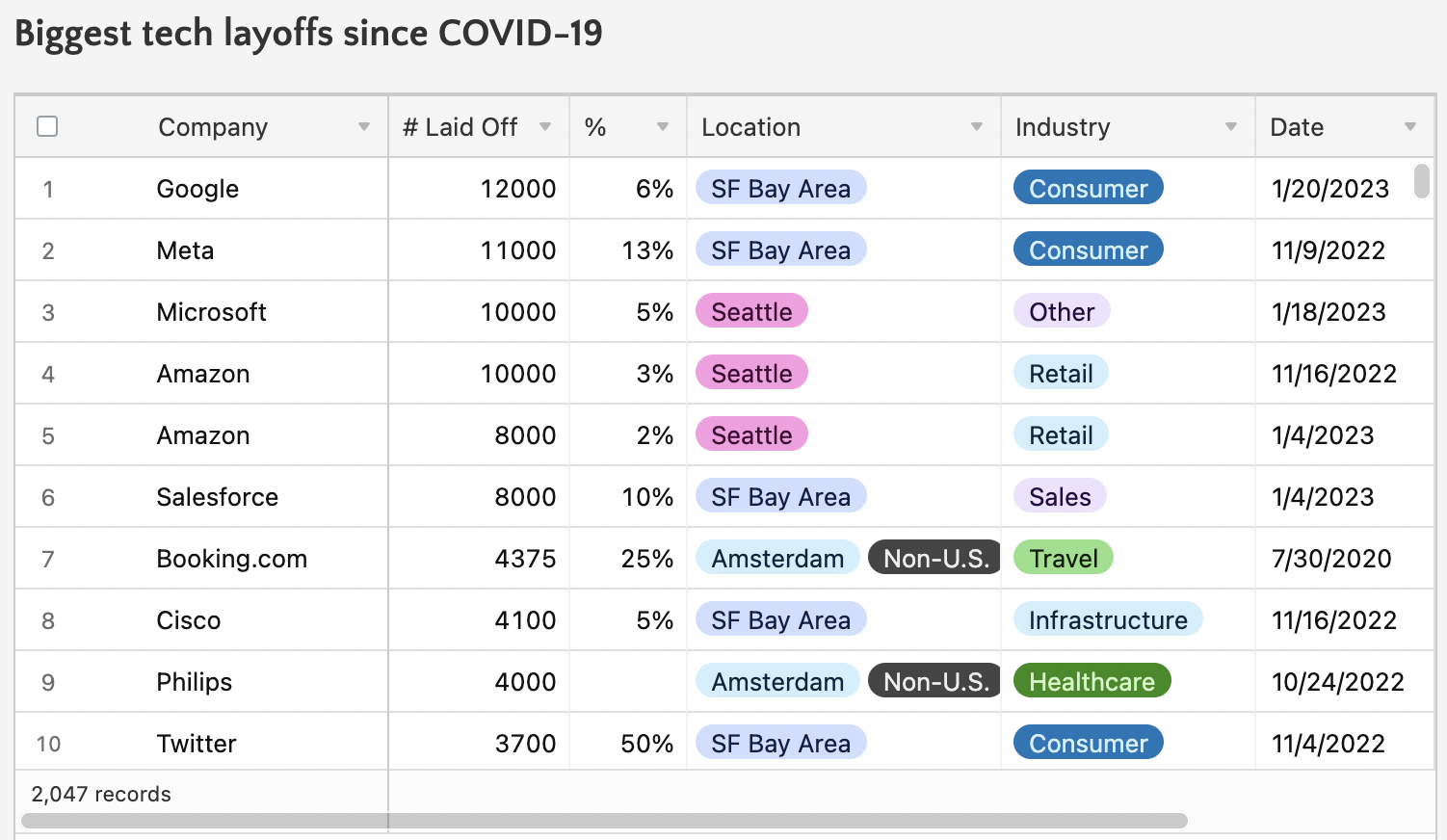What makes you expendable in the tech industry
Welcome to the tech industry. Meet your companions - high attrition rates, competitive salaries, changing trends, fun, learning, problem solving, stress and offcourse layoffs.
Layoffs in the past year or so have become rampant with most big organisations joining the trend. People from diverse bands have faced the axe - from freshers to highly experienced individuals.
Our office time forms a significant chunk of our lives. Its understandable that calls for empathy are being made in social media by those who have been laid off. We often forget that the employer-employee relationship is a symbiotic one. Each one helps the other to achieve goals. Any one side can end this professional relationship.
My earlier post on “5 career tips for a software engineer” focuses on how you can improve yourself to be a successful software engineer in the industry. This post focuses on adapting to external factors which you do not control. Like driving on roads, you can recognise the patterns and do a better job navigating them.
Visualisation from Layoffs.fyi:

What makes you expendable
You are not a significant contributor to the crown jewels of the org
- The crown jewels of an organisation are the products which deliver the most impact(usually money) or have a big potential to do so in the future.
- Eg: For Google, the crown jewels based on revenue could be Ads, Search, Gmail, YouTube, Chrome, Maps, Android and Cloud along with some internal tools which are big enablers (eg: Borg).
- For a lot of people, the goal is to get into their “dream” company. The role or type of work takes secondary place.
- During a consolidation or recession, the ones who usually get affected are contract workers, those working on non-essential services, those working on R&D of concepts with less impact etc. Even those working on minor tweaks on a big stable product can get laid off.
Your tech skills have become redundant
- The tech industry is one of those workstreams where you have to keep updating yourself even when it comes to core tenets. The idiom “you snooze, you lose” is very apt here.
- Chances of your tech skills being redundant are higher in some cases :
- You are a generalist problem solver with skillsets matching a lot of others. Eg : Lots of folks out there advertise themselves as a Java engineer or a full stack engineer but hard to distinguish yourselves from others with just this skillset.
- You rely on your people skills more than you rely on your tech skills. Its harder to quantify your achievements in an industry where the word “manager” is frowned upon.
- Lesser opportunities for utilizing a niche skillset and you arent adapting to the new trends.
- Its easy to replace you with a cheaper alternative in some other location (usually a developing country).
- You have met your goals in the current org but arent moving on to the next one due to inertia.
Your value proposition is not known (eg: new hires)
- The best people I worked with are those who actively take responsibilities while going deep into a technology to become the go-to person for the tech/tool. People depend on them for solving their problems.
- If you arent known OR its easy to get people/automation to do your work, then your importance greatly diminishes in the eyes of your employer.
- If you are new to the job then you come in with a couple of big disadvantages during a recession:
- You are still trying to make an impact in the initial probation period of your new job.
- The organisation doesnt really know your worth and relies on the fact that they did fine without you before.
Tips for surviving in the tech industry over a long time
There is no guarantee for success but there are some practices which have worked well for a lot of techies.
- Join an organisation only if you get to do significant work on a core product.
- Aim to switch jobs during a recession ONLY if your current job is at risk.
- As they say - “A bird in the hand is worth two in the bush”. You dont want to be the new person in an organisation and inherit the reduced job security which comes with it.
- Big tech consultancies or regulated companies can be safer bets during troubled financial times.
- Consultancies might not be able to match salaries at product companies but they usually have a backlog of client work which can ride out a year of financial turmoil.
- Consultancies also tend to avoid mass layoffs as they seek to retain some bench strength.
- Additionally regulated industries like banking, healthcare, insurance, utilities, automative etc with inhouse tech teams are usually starved of talent and need people at most times.
- Join startups at the initial parts of your career to gain maximum learning over a short duration of time.
- That prepares you for most stressful situations on the job and everything else feels easier after it.
- Stay clear of startups who dont have a solid revenue plan and rely solely on VC money to stay afloat.
- Keep building your knowledge and your digital profile.
- Dont just wait to post on LinkedIn during times of need. Share your knowledge at regular times.
- More on this in my other post - “5 career tips for a software engineer”.
- Switching to a different region can be a good option for some.
- Eg: Asia looks to be more resilient to economic downturns compared to others. The reduced cost of living and bigger opportunities to make an impact are factors working in favour of Asia.
- Help others.
- You can choose to believe in karma or in the act of debt. It can be something small like writing a LinkedIn testimonial or something big like helping out with career advice. You never know when a random act of kindness comes back to assist you in your time of need.

